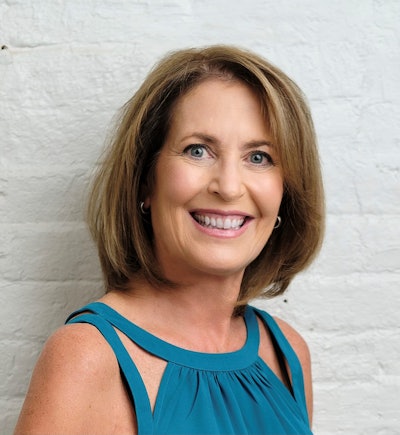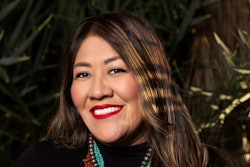Since 2018, the percentage of women of color who are presidents of higher education institutions in the state of Massachusetts has doubled from 6% to 12%. But none of those women identify as Latinx or Indigenous, and overall, there has been minimal progress for women in positions of leadership.
Women presidents make up just 34% of the 88 sitting presidents in Massachusetts, climbing just one percentage point in four years. That’s according to the latest progress report issued by the Women’s Power Gap (WPG), a campaign created to increase the number of diverse women as CEOs and institutional leaders. WPG is a part of the Eos Foundation, a private, philanthropic group working for a more equitable society.  Andrea Silbert, president of the Eos Foundation.
Andrea Silbert, president of the Eos Foundation.
“We’re understandably disconcerted at the fact that the number of women presidents hasn’t increased, really,” said Andrea Silbert, president of the Eos Foundation. “We have a pool of about a third of our positions that we can allocate among women. So, we just need a bigger slice of the pie.”
There are currently 11 open positions for presidency in Massachusetts, all of which could be an opportunity for a woman to lead, said Silbert. No R1 research university in Massachusetts currently has a sitting woman president, and of the eight elite schools that operate in the state, five have never had a women president, including Boston University.
“It’s disappointing to see our stats still in 30% range,” said Dr. Lisa Ijiri, clinical professor of higher education at Boston University, who added that an eventual woman president at Boston University would be received with “appreciation, readiness, and a sense of, what-took-so-long?”
The report indicates that the state’s community colleges have seen an overall decrease in women presidents. In 2019, 53% of the 15 community colleges in the state had a woman president. But in 2022, that number dropped 17 percentage points.
“Over the last three years, the community colleges in Massachusetts have seen a shift in leadership, including several retirements of long-serving presidents,” said Sarah Yunits, deputy executive director of the Massachusetts Association of Community Colleges. “All told, however, the colleges collectively lost only two female presidents — at the start of the upcoming fall semester, six of our 15 presidents will be women, of whom three are women of color.”





















